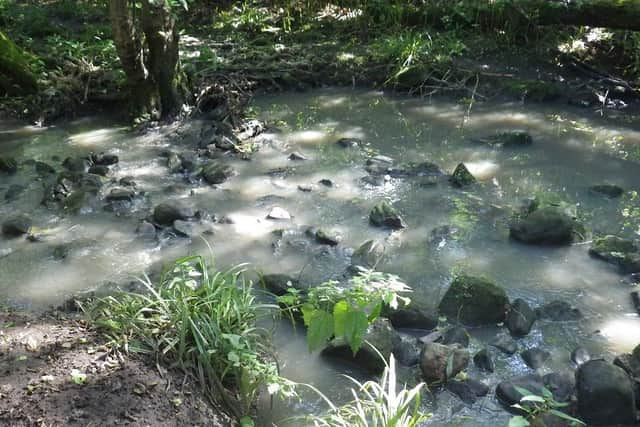Yorkshire Water pays record £1million payout after Harrogate pollution sparks investigation by Environment Agency
and live on Freeview channel 276
After making the payout following an investigation by the Environment Agency into the incident which happened seven years ago, the giant utility firm said its procedures and processes had “evolved significantly since 2016”.
A Yorkshire Water spokesperson said: “This incident was initially caused by a plank of wood that shouldn’t have been in the sewer network and took place seven years ago.
Advertisement
Hide AdAdvertisement
Hide Ad"We acted quickly to stop the pollution but understand incidents of this kind are distressing and when things go wrong, we understand we have a responsibility to make it right and to prevent these things from happening at all.


"Unfortunately, it has taken seven years to reach an agreement with the Environment Agency to donate funds to local wildlife charities that will directly benefit Yorkshire.
"But we are pleased to have finally provided funds to the Yorkshire Wildlife Trust and Yorkshire Dales Rivers Trust."
Yorkshire Water’s £1m charitable donation – £500,000 to Yorkshire Wildlife Trust and £500,000 to Yorkshire Dales Rivers Trust – is the largest ever accepted by the Environment Agency.
Advertisement
Hide AdAdvertisement
Hide AdThe record payout highlights once again Harrogate residents’ concerns over water pollution which has seen Harrogate and Knaresborough MP Andrew Jones champion a local campaign to have parts of the River Nidd designated Bathing Water Status.
This particular incident goes back to August 31, 2016 when the Environment Agency received a report of pollution in Harrogate’s Hookstone Beck.
Hookstone Road combined sewer overflow has an environmental permit which allows a discharge into the beck when the storm sewage facility is full due to rainfall or snow melt.
Investigating officers from the Environment Agency traced the pollution to the overflow at Hookstone Road, which had blocked and not alerted Yorkshire Water due to faulty telemetry equipment.
Advertisement
Hide AdAdvertisement
Hide AdThe investigation found that almost 1,500 fish had been killed and water quality affected for 2.5km downstream. A series of further blockages and discharges took place in the following months.
A detailed Environment Agency investigation was undertaken, this included the use of devices called sondes in the river to measure the impact of ammonia and an assessment of Event Duration Monitoring data that revealed the company was in breach of its environmental permit.
In response, Yorkshire Water said it had completed a significant £1.85million sewer network upgrade in the area as part of the enforcement terms.
A spokesperson for the company said: "Following this incident in 2016, we spent almost £2m to improve the sewer network in the area to prevent repeat issues.
Advertisement
Hide AdAdvertisement
Hide Ad“We’re committed to protecting the environment and our procedures and processes have evolved significantly since 2016, contributing to a halving of pollution incidents in the last five years."
Yorkshire Wildlife Trust says it will use the record payment in North Yorkshire for new and improved homes for wildlife, mainly on wetland reserves.
This includes reprofiling Ripon City Wetlands to create muddy shores for wading birds, safe breeding islands and removing invasive plants.
Yorkshire Dales Rivers Trust will use the payment to develop a programme of improvements along the River Nidd, working through the catchment partnership – Dales to Vales Rivers Network - with local communities, other organisations and building on existing work with citizen scientists.